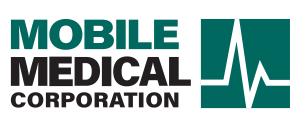The thyroid is a butterfly shaped gland located in the front of the neck. The thyroid is important in many ways to keep your body healthy. The thyroid gland is responsible for producing hormones which are secreted in the blood and then carried to every tissue in the body. Thyroid hormones help the body use energy, stay warm, and keep the brain, heart, muscles and other organs function as they should. A healthy thyroid gland is about the size of a walnut.
There are 2 main types of thyroid disease hypothyroidism and hyperthyroidism
Hypothyroidism-thyroid gland does not produce enough thyroid hormone. Symptoms include extreme fatigue, frequent heavy menstrual periods, having dry coarse hair, having a hoarse voice, experiencing an intolerance to cold temperatures, forgetfulness, and some weight gain.
Hyperthyroidism- thyroid gland produces too much thyroid hormone. Symptoms include irritability, nervousness, muscle weakness, unexplained weight loss, sleep disturbances, feeling sensitive to heat, vision problems and eye irritation.
Both conditions can be caused by other disease that impact the way the thyroid gland works.
Conditions that can cause hypothyroidism include:
Thyroiditis: This condition is an inflammation (swelling) of the thyroid gland. Thyroiditis can lower the number of hormones your thyroid produces.
Hashimoto's thyroiditis: A painless disease, Hashimoto's thyroiditis is an autoimmune condition where the body's cells attack and damage the thyroid. This is an inherited condition.
Postpartum thyroiditis: This condition occurs in 5% to 9% of women after childbirth. It's usually a temporary condition.
Iodine deficiency: Iodine is used by the thyroid to produce hormones. An iodine deficiency is an issue that affects several million people around the world.
A non-functioning thyroid gland: Sometimes, the thyroid gland doesn't work correctly from birth. This affects about 1 in 4,000 newborns. If left untreated, the child could have both physical and mental issues in the future. All newborns are given a screening blood test in the hospital to check their thyroid function.
Conditions that can cause hyperthyroidism include:
Graves' disease: In this condition the entire thyroid gland might be overactive and produce too much hormone. This problem is also called diffuse toxic goiter (enlarged thyroid gland).
Nodules: Hyperthyroidism can be caused by nodules that are overactive within the thyroid. A single nodule is called toxic autonomously functioning thyroid nodule, while a gland with several nodules is called a toxic multi-nodular goiter.
Thyroiditis: This disorder can be either painful or not felt at all. In thyroiditis, the thyroid releases hormones that were stored there. This can last for a few weeks or months.
Excessive iodine: When you have too much iodine (the mineral that is used to make thyroid hormones) in your body, the thyroid makes more thyroid hormones than it needs. Excessive iodine can be found in some medications (amiodarone, a heart medication) and cough syrups.
How can you observe Thyroid awareness month?
- Take some time to become familiar with the common risk factors. According to the Cleveland Clinic, you may be at higher risk of developing a thyroid condition if you:
- Have a family history of thyroid disease.
- Have a medical condition (these include pernicious anemia, Type 1 diabetes, primary adrenal insufficiency, lupus, rheumatoid arthritis, Sjogren's syndrome and Turners Syndrome).
- Take medication that's high in iodine (amiodarone).
- Are older than age 60, especially in women.
- Have had treatment for a past thyroid condition or cancer (thyroidectomy or radiation).
- Take the Thyroid neck check - Have a hand-held mirror and a glass of water handy. With the mirror in your hand, focus on the lower front area of your neck, above the collarbone, and below the voice box (larynx). This is where your thyroid gland is located. While focusing on this area, tip your head back, take a drink of water, and swallow. As you swallow, look at your neck. Check for any bulges or protrusions. (Don't confuse the Adam's apple with the thyroid gland.) If you do see any bulges, see your physician. You may have an enlarged thyroid gland or a thyroid nodule.
- Donate to help with research
- Encourage family and friends to get tested
- Schedule an appointment to talk with your doctor today
Our dear friends and family members also may suffer from the thyroid gland related ailment. I wish all my dearly loved friends and family members – Happy National Thyroid Awareness Month. Go for a check-up and be courageous to deal with it. ~Author Unknown
Resources:
https://www.aace.com/disease-and-conditions/thyroid/how-check-your-thyroid
https://my.clevelandclinic.org/health/diseases/8541-thyroid-disease
https://www.saintjohnscancer.org/blog/endocrine/january-is-thyroid-awareness-month/
https://www.thyroid.org/professionals/ata-professional-guidelines/



